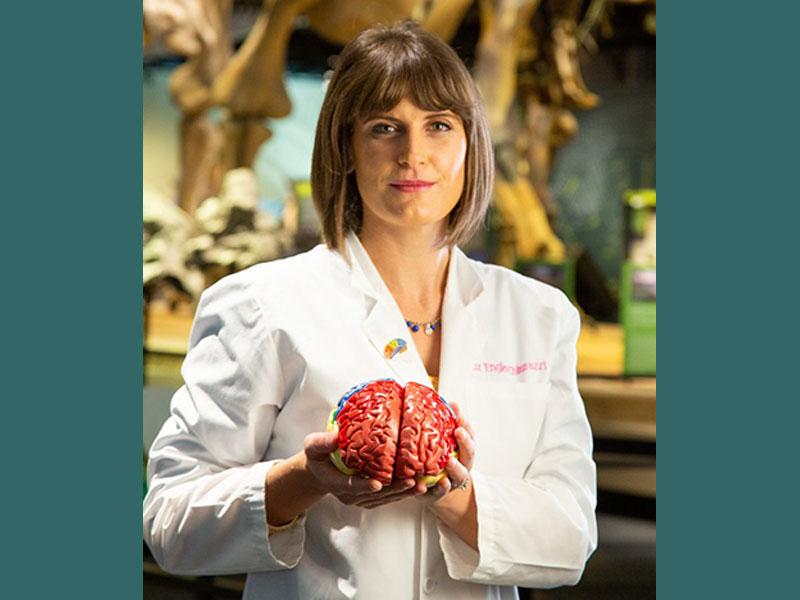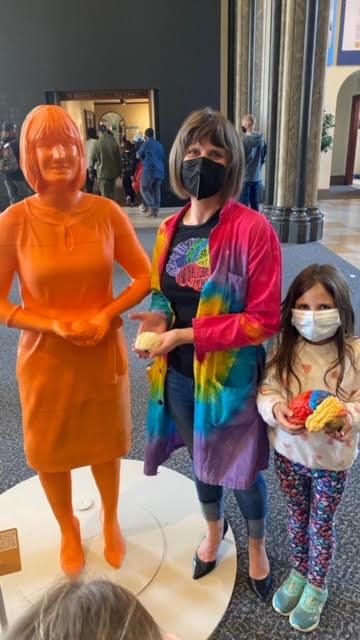Tulane neuroscientist among women honored in Smithsonian’s If/Then exhibit
This March, the Smithsonian Institution is adding to the excitement of Women’s History Month with its program Women’s Futures Month, which will feature “#IfThenSheCan – The Exhibit,” a collection of 120 life-size statues honoring groundbreaking women in science, technology, engineering and mathematics (STEM). Elizabeth “Liz” Engler-Chiurazzi, Tulane assistant professor of neurosurgery at the School of Medicine, is one of the 120 If/Then ambassadors.
The statues provide a powerful visual representation of the ambassadors, who serve as role models for middle-school girls. The American Association for the Advancement of Science made the selections in partnership with Lyda Hill Philanthropies.
The 3D-printed statues are perhaps the largest collection of statues of women ever assembled, and each one contains a QR code that visitors can scan to learn more about the woman represented. The collection pays tribute to an array of pioneering women professionals including biologists, astrophysicists, chemists, ecologists, robotic engineers and, in the instance of Engler-Chiurazzi, neuroscientists.
Engler-Chiurazzi’s National Institutes of Health-funded research at the Clinical Neuroscience Research Center focuses on how the nervous system and the immune system cooperate and impact the way the brain works and how individuals think. One of her projects explores how a particular immune cell type, the B lymphocyte, influences the way humans respond to stress. For some people, the interactions of the nervous and immune systems can result in chronic stress disorders such as major depression and bipolar disorder. Engler-Chiurazzi hopes to destigmatize such conditions by “attacking the problem where the problem is — the biology, not the person.”
Engler-Chiurazzi also studies the differences between the stress responses and aging in various populations, focusing on women’s health.
“What inspired me to pursue women’s health was an important observation: Much of what we know about how the body works has been understood based on studies conducted on young adult male organisms; the problem with that is that not all of us are young adults, and not all of us are male,” she said.
The If/Then initiative hopes to bring about a culture shift by spotlighting the world-changing work of high-profile women in STEM, further opening this path for girls to follow in their footsteps.
“It has been such an honor to help change the way society thinks of who can be a STEM professional. In the end, I want everyone who sees the exhibit to realize their own ability to create a culture shift, even amongst the challenging times our world is experiencing. I want every child to believe they have an opportunity to change the world one day,” said Engler-Chiurazzi.
Selected statues from the If/Then Exhibit will be on display on and around the National Mall in Washington, D.C., through March 27. For more information about the exhibit, click here.


